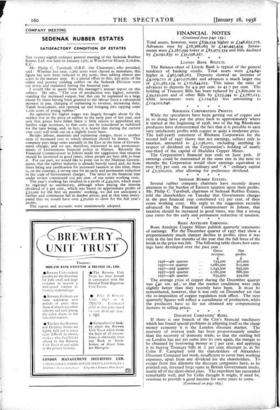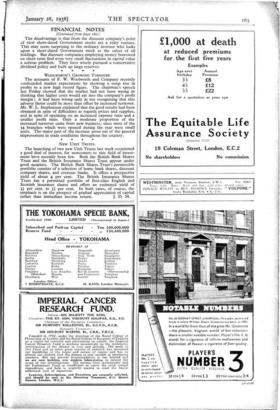DISCOUNT COMPANIES' RISKS.
If there is one branch of the City's financial machinery which has found special problems in adapting itself to the cheap money economy it is the London discount market. ' The recovery of • oversea trade hai been proportionately smaller than the recovery of domestic trade, so that the sterling bill on London has pot yet come into its own again, the margin to be obtained by borrowing money at 4 per cent. and applying it to buying Treasury bills at 195- per cent. discount is, as Sir Colin F. Campbell told the shareholders of Alexanders Discount Company last week, insufficient to cover bare working expenses, apart froth any dividend for the shareholders. To escape from this dilemma the discount companies have, as he pointed, out, invested large sums in British Government stocks, nearly all of the short-dated class. The expedient has succeeded remarkably well, and Sir Colin thought it might, if need be, continue to provide a good income for some years to come.
(Continued on page 163.)
FINANCIAL NOTES
(Continued from page 16o.) The disadvantage is that from the discount company's point of view short-dated Government stocks are a risky venture. This may seem surprising to the ordinary investor who looks upon a short-dated Government stock as the safest of all holdings. But discount companies employing money borrowed on short term find even very small fluctuations in capital value a serious problem. They have wisely pursued a conservative dividend policy and built up large reserves.



















































 Previous page
Previous page